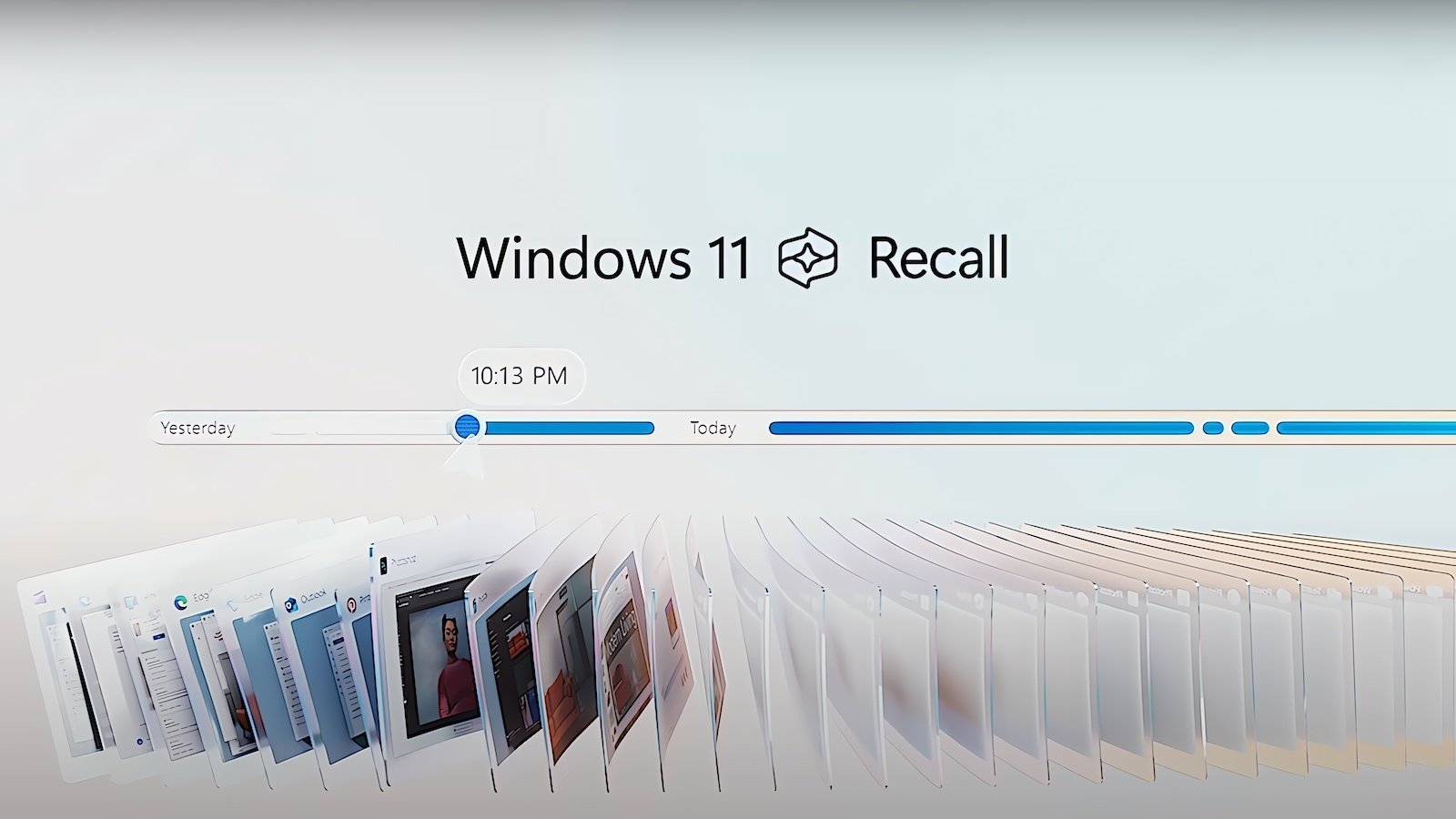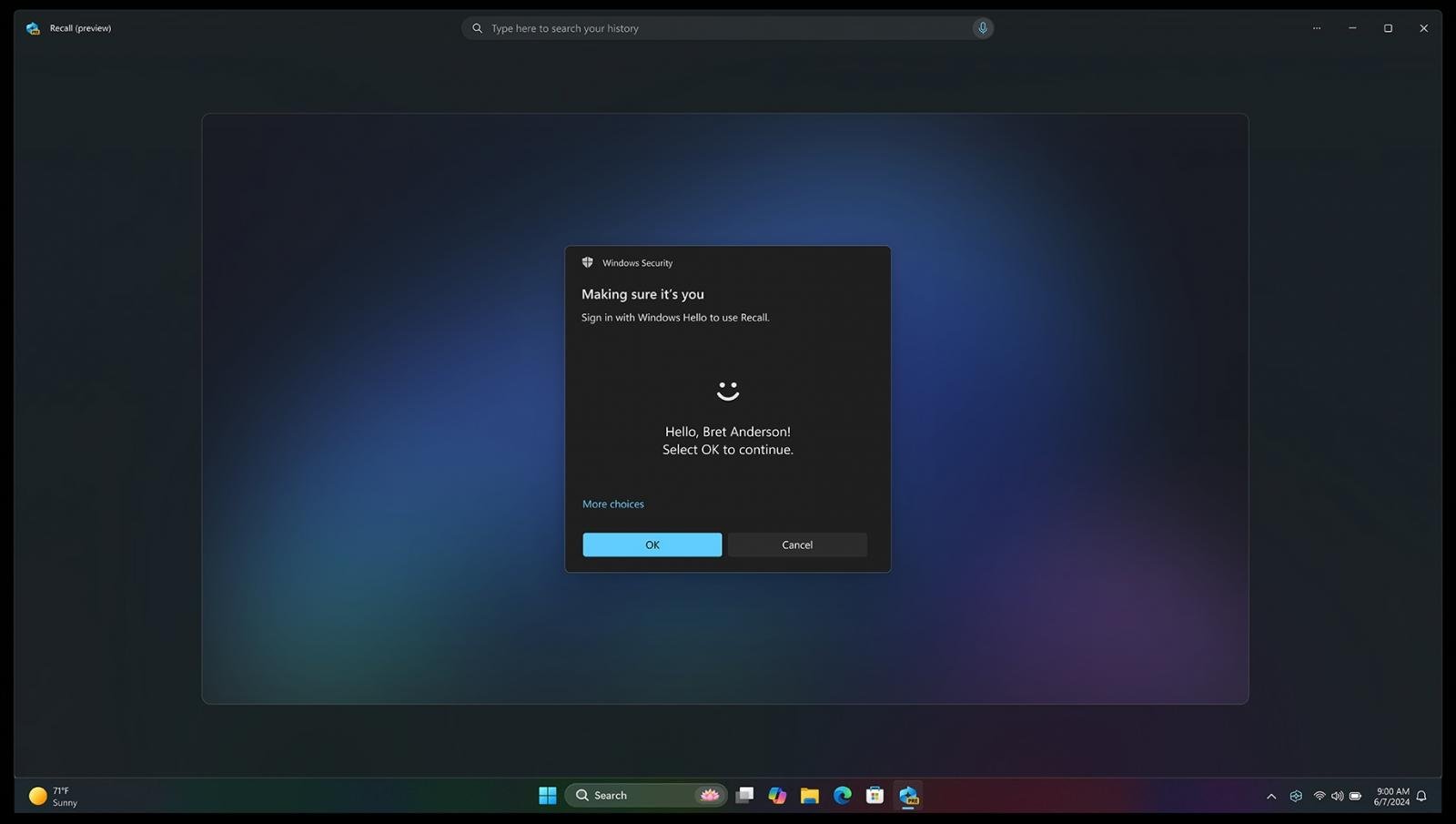
Microsoft is delaying the discharge of its AI-powered Home windows Recall function to check and safe it additional earlier than releasing it in a public preview on Copilot+ PCs.
Initially slated for launch in a public preview on June 18 with the arrival of the brand new Copilot+ AI PCs, the corporate now says they’re delaying its launch by making it first accessible for preview with Home windows Insiders.
“Recall will now shift from a preview expertise broadly accessible for Copilot+ PCs on June 18, 2024, to a preview accessible first within the Home windows Insider Program (WIP) within the coming weeks, ” reads an replace to a latest Home windows Recall weblog put up.
“Following receiving suggestions on Recall from our Home windows Insider Neighborhood, as we usually do, we plan to make Recall (preview) accessible for all Copilot+ PCs coming quickly.”
This replace comes on the identical day as a scathing report from ProPublica about how Microsoft put income above safety and Microsoft President Brad Smith’s assembly with the US Congress to debate the corporate’s latest safety failures.
The brand new AI-powered function takes screenshots of each lively window in your PC each couple of seconds. These screenshots are then analyzed by an Azure AI mannequin that runs on the system to drag data from the picture and add it to a SQLite database.
The function lets you carry out human language searches for extracted knowledge, with Home windows Recall pulling up the screenshots for the searched phrases, making it simple to search out historic knowledge.

Since Microsoft introduced the function, privateness advocates and cybersecurity specialists have been warning that Home windows Recall is a privateness nightmare and would possible be abused to steal customers’ knowledge.
Microsoft stated the function could be enabled by default on new Copilot+ AI units and encrypted utilizing Bitlocker, claiming it made it secure from theft.
Nevertheless, Bitlocker robotically decrypts the contents of a drive when a consumer logs in, making it accessible to malware and anybody with bodily entry to a tool.
Cybersecurity professional Kevin Beaumont illustrated how present information-stealing malware could possibly be altered to steal the Home windows Recall databases and screenshots for offline evaluation and knowledge theft.
Since then Beaumont continued to spearhead an effort to get Microsoft to drag, or not less than “recall,” the function to safe it correctly earlier than it’s launched.
Microsoft caved in and, on June 7, introduced that they might be offering further safety by making Home windows Recall an opt-in function and encrypting the database till a consumer authenticates with Home windows Hi there after they open the app.
It’s unclear what further safety measures Microsoft plans to construct into the function.
Nevertheless, with the way it was initially delivered with out satisfactory testing and consideration of safety, it will likely be a troublesome uphill battle for Microsoft to regain any belief associated to this function.